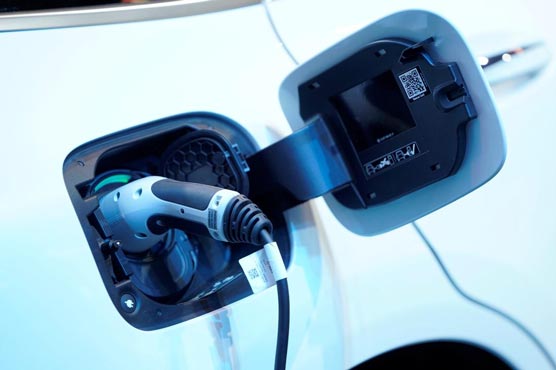White House asks EPA to study how EVs can generate renewable fuel credits

White House asks EPA to study how EVs can generate renewable fuel credits
NEW YORK (Reuters) - The White House has directed the U.S. Environmental Protection Agency to study how using renewable fuels to power electric vehicle charging could generate tradeable credits under the nation’s biofuels program, two sources familiar with the discussions told Reuters.
The move could give the fledgling U.S. electric vehicle industry a big boost by granting it fresh incentives and a new revenue stream. But the idea would introduce new actors like Tesla Inc into a program that has already bitterly divided the oil and corn industries.
Under the U.S. Renewable Fuel Standard (RFS), oil refiners must blend biofuels such as corn-based ethanol into their fuel mix or buy tradable credits, known as RINs, from those that do. The program was launched more than a decade ago to support farmers and reduce petroleum imports.
If the program were expanded to include EVs the RINs would come from charging the vehicle using electricity produced by a renewable source of methane, like gas siphoned from landfills or dairy operations, according to the sources.
There’s potentially a lot of that kind of fuel available: Agriculture accounts for 10% of U.S. greenhouse gas emissions, with livestock making up more than a third of that, according to EPA data. Landfills, meanwhile, are a major source of methane.
Electricity from biogas is already technically eligible for generating RINs under the RFS, but the EPA has never approved applications to do so because the agency hasn’t yet figured out the logistical issues.
The key questions are how to trace the credit-eligible biogas from its origin all the way through to a car’s battery, and who along that supply chain should be allowed to claim the lucrative credits.
“There’s going to be a big fight between biomass producers, charging station operators and EV carmakers like Tesla over who gets custody of the RIN,” said one of the sources.
The White House and the EPA declined to comment.
The existing RFS program is already a lightning rod of contention between the oil and corn industries.
Refiners complain that complying with the regulation costs them a fortune, while farmers and biofuel producers say the program is essential for them to stay in business.
One source told Reuters that Tesla, which produces both cars and charging stations, has been lobbying the Biden administration to ensure it can generate and sell credits if the new plan gets off the ground.
Tesla did not respond to a request for comment.
“EPA seems to be hung up on who should generate the RINs — but that should be easy enough for them to address,” said David McCullough, who counsels on energy regulation at Eversheds Sutherland.

